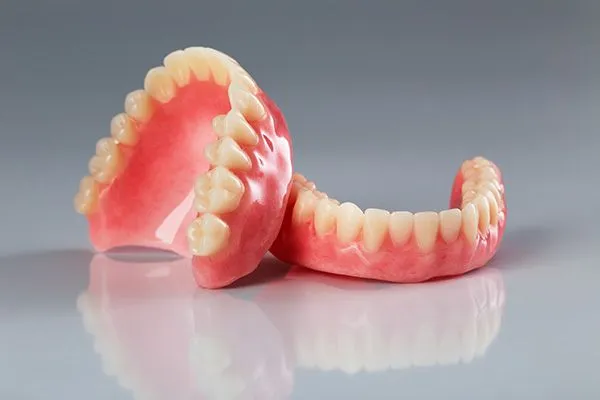Denture relining offered by the dentist in Wylie, and their expert team, is a process used to refit and recontour dentures to ensure a comfortable and secure fit. Over time, the shape of the gums and jawbone can change, causing dentures to become loose or uncomfortable. Relining helps to restore the proper fit, extending the life of the dentures and preventing potential issues.
What is denture relining?
Denture relining is a dental procedure that involves reshaping and refitting the base of a denture to ensure a secure and comfortable fit. It involves adding a new layer of material to the existing denture base, which is molded to match the changing shape of the gums and jawbone.
The goal of denture relining is to restore the proper fit and function of the denture, preventing issues such as looseness, discomfort, and irritation. Relining can be done for both partial and complete dentures and is typically necessary every 2-5 years due to natural changes in the mouth. By relining dentures, you can enjoy improved chewing and speaking ability, increased confidence, and a better overall quality of life.
Why is denture relining necessary?
Denture relining is necessary for several reasons:
- Bone loss: The jawbone can resorb over time, changing the shape of the gums and affecting the fit of the dentures.
- Gum changes: Gums can shrink or change shape, causing the dentures to become loose.
- Wear and tear: Dentures can become worn, causing them to fit poorly.
- Changes in bite: The way the upper and lower teeth fit together can change, affecting the fit of the dentures.
- Weight loss or gain: Significant weight changes can affect the fit of the dentures.
- Aging: As we age, the gums and jawbone can change shape, requiring relining.
- Denture settling: Dentures can settle over time, requiring relining to maintain a proper fit.
- Poor oral health: Gum disease, tooth loss, or other oral health issues can affect the fit of the dentures.

What are the types of denture relining?
There are several types of denture relining, such as:
- Hard reline: A new base is created for the denture, using a hard, durable material.
- Soft reline: A soft, flexible material is used to create a new base for the denture.
- Temporary reline: A temporary solution, often used for immediate relief from discomfort or pain.
- Chairside relining: The dentist performs the relining process in the office.
- Same-day relining: The relining is completed in a single visit.
How is denture relining performed?
The denture relining process typically involves the following steps:
- Examination: The dentist evaluates the fit and condition of the dentures.
- Preparation: The dentures are cleaned and prepared for relining.
- Impressions: Impressions are taken of the gums and jawbone using a soft, moldable material.
- Laboratory work: The impressions are sent to a dental laboratory where a new base is created for the denture.
- Try-in: The relined denture is tried in the mouth to ensure a proper fit.
- Adjustments: Any necessary adjustments are made to ensure comfort and security.
- Finalization: The relined denture is finalized and delivered to the patient.
The entire process typically takes 1-5 days, depending on the type of relining and the dentist’s workflow.
What does after-care post-denture relining involve?
Aftercare involves:
- Regular cleaning and maintenance of the dentures
- Regular dental check-ups to monitor the fit and condition of the dentures
- Avoiding hard or sticky foods that can damage the dentures
Final note
Denture relining is a simple and effective solution to ensure a comfortable and secure fit for dentures. By understanding the process and benefits, individuals can take steps to maintain their oral health and extend the life of their dentures. Regular dental check-ups and proper maintenance are essential to ensure the best results.

